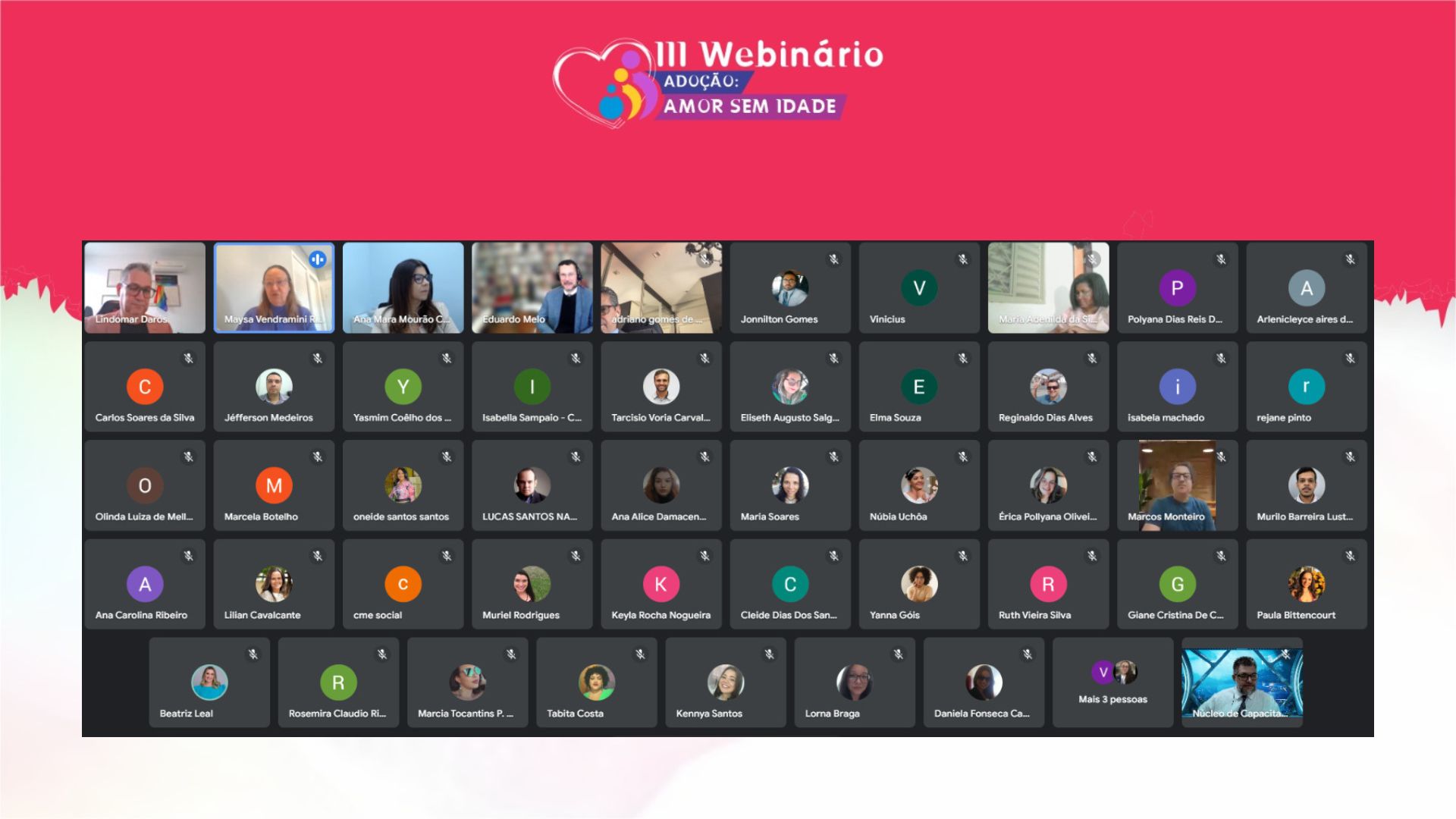
On Tuesday morning (May 27th), the General Internal Affairs of Justice, in partnership with the Superior School of the Judges of the State of Tocantins (ESMAT), held the 4th edition of the Love in Action Webinar, with the theme on “Ethnic-racial, sexual orientation and gender identity issues in adoption processes”. The event aimed to promote a space for dialog and reflection on the complexities of the issues surrounding the adoption process.
At the opening of the webinar, Justice Maysa Vendramini Rosal pointed out that the event complies with the Resolution 532/2023 of the National Council of Justice (CNJ) and, in this sense, aims to combat any form of discrimination related to sexual orientation and gender identity in adoption proceedings.
“This is a very sensitive issue and the Judiciary has a duty to ensure and vehemently combat any form of discrimination, especially by paying attention to gender identity in cases. This is a valuable opportunity for us to reflect deeply on this very important issue,” she said.
The webinar featured speakers and debaters specialized in the area of Children and Youth. Judge Eduardo Rezende Melo, coordinator of the pedagogical area of Childhood and Youth at the School of the Judges of the State of São Paulo, brought up the differences and ethnic-racial issues related to adoption. He addressed the importance of considering these aspects when dealing with adoption processes, highlighting the need for sensitivity and preparation to provide a welcoming and inclusive environment for children from different ethnic and racial backgrounds.
“It is essential that we recognize that ethnic-racial differences play a crucial role in adoption processes. When dealing with these issues, we must act with sensitivity, respect and adequate preparation. Each child brings with them a unique story, marked by their ethnic and racial heritage, and it is our duty to ensure that they feel loved, accepted and valued in their new homes,” said the magistrate.
Sexual orientation and gender identity in adoption processes were the subject of a lecture by Lindomar Expedito Silva Darós, who holds a doctorate and post-doctorate in Public Policy and Human Formation. He pointed out that the world is surrounded by inequalities and hierarchies, and it is important to think that adoption, in its essence, is about finding a loving and safe home for children who need it. “Unfortunately, prejudices and stigmas often make this process difficult for many adoption candidates,” he warned.
Dialogue
The webinar was attended by 100 people, among magistrates, civil servers and representatives of public institutions that make part of the Justice system.
For the State Coordinator for Children and Youth, Judge Adriano Gomes de Melo Oliveira, this is an extremely necessary dialog which, in addition to issues related to the adoption process itself, must also be considered in the sphere of social assistance. “It's important to understand the profile of these people, both in terms of behavior and needs. Our aim is to ensure that they are prepared not only for the legal process, but also for the human aspect involved. We want to ensure that our work is not only legal, but also empathetic, in order to avoid complications in the future,” he said.
Participating in the webinar, civil server Marcos Monteiro stressed the importance of encouraging professionals to reflect on racial, LGBTQ+ and ethnic-racial family dynamics; and highlighted the initiative of the Judiciary. “It was very important for the judiciary to bring up these essential issues. Promoting this reflection is crucial to foster greater understanding and sensitivity in these areas, enabling professionals to offer more inclusive and effective support,” he said.
The event was attended by the Citizenship Coordinator of the Judiciary of the State of Tocantins, Judge Odete Batista Dias Almeida; Judge Renata do Nascimento e Silva; and the executive secretary of the State Judicial Adoption Commission (Ceja/CGJUS), Ana Mara Carneiro Mourão.




